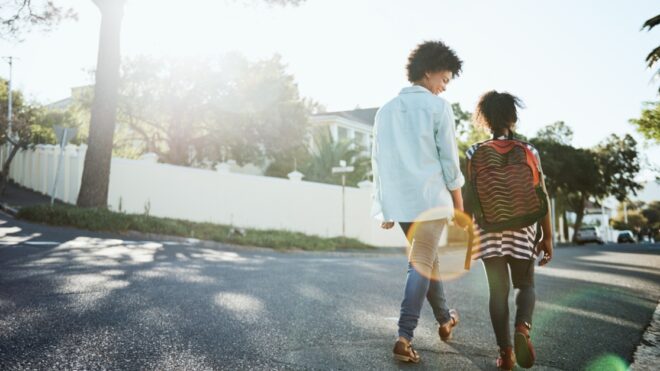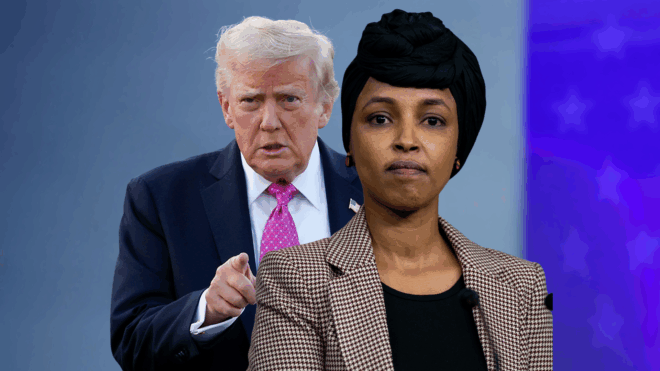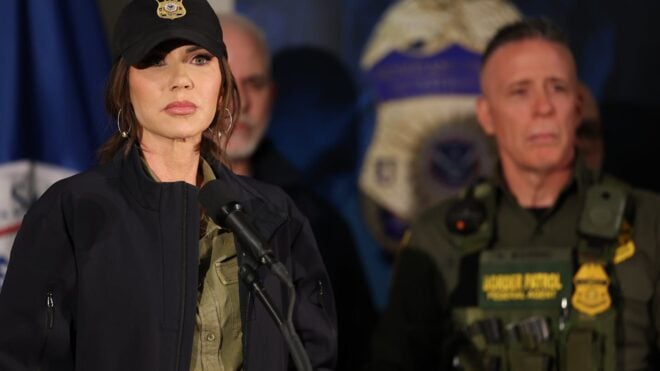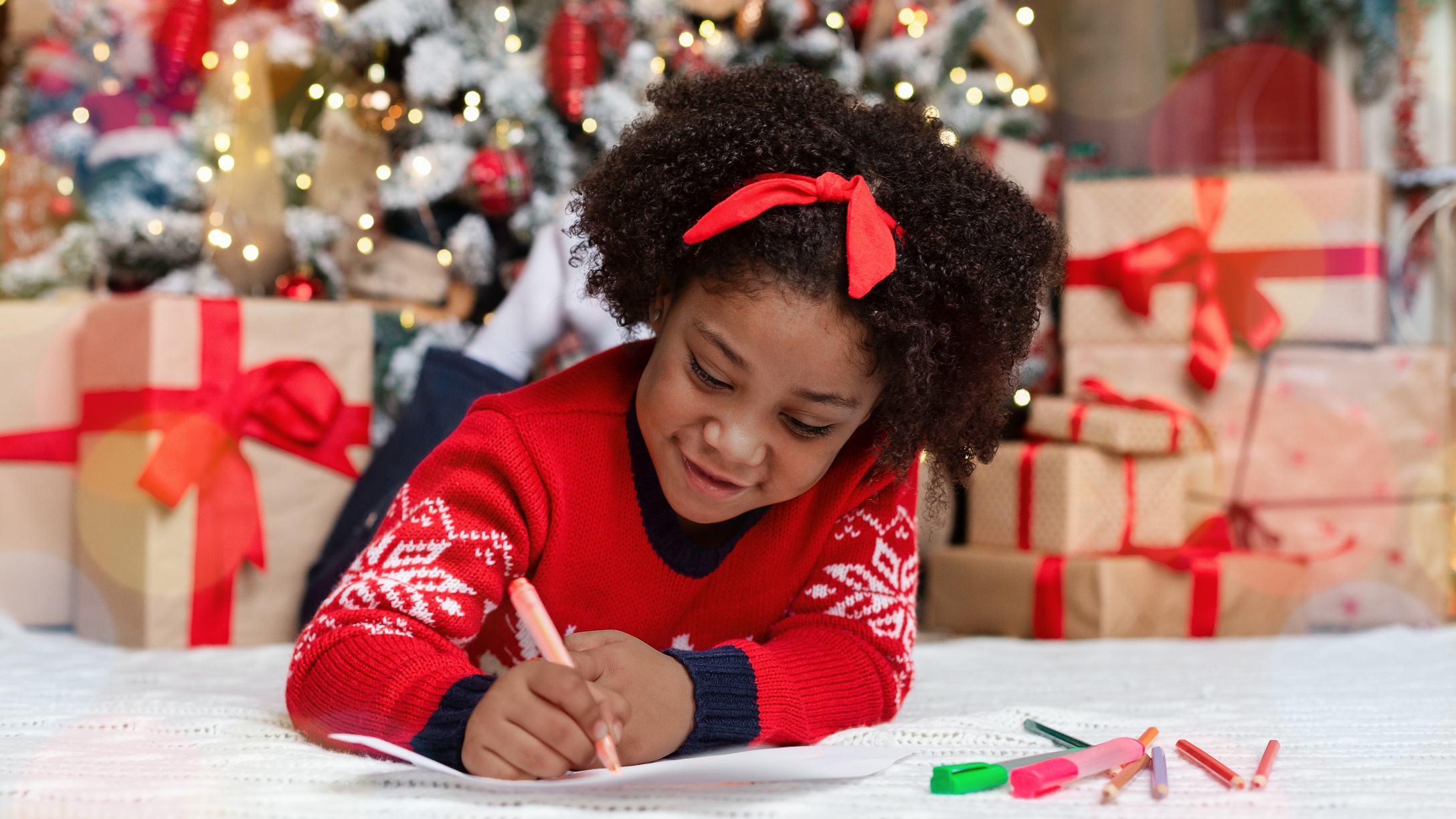
At the beginning of every December, I place a letter from Santa into a small tin mailbox that will “magically” arrive on the kitchen counter. The letter is my attempt to keep the important things in perspective for my children each holiday season. It’s a request for selflessness and gratitude during a time when it’s easy for all of us to get caught up in lists of wants.
Santa starts the letter with a personalized greeting to my kids and lets them know what the reindeer and elves are up to. He then asks if they can help him spread kindness and holiday cheer. Santa has asked the kids to make cookies for neighbors, donate food to a local food bank, and pick out toys and leave them in the bins at the stores that then deliver the toys to kids and families who need extra help. Santa has also asked the kids to brainstorm their own ways to contribute. One year the kids made paper ornaments for neighbors, and one year they offered to help out more around the house. That last one didn’t go over as well as Santa would have liked.
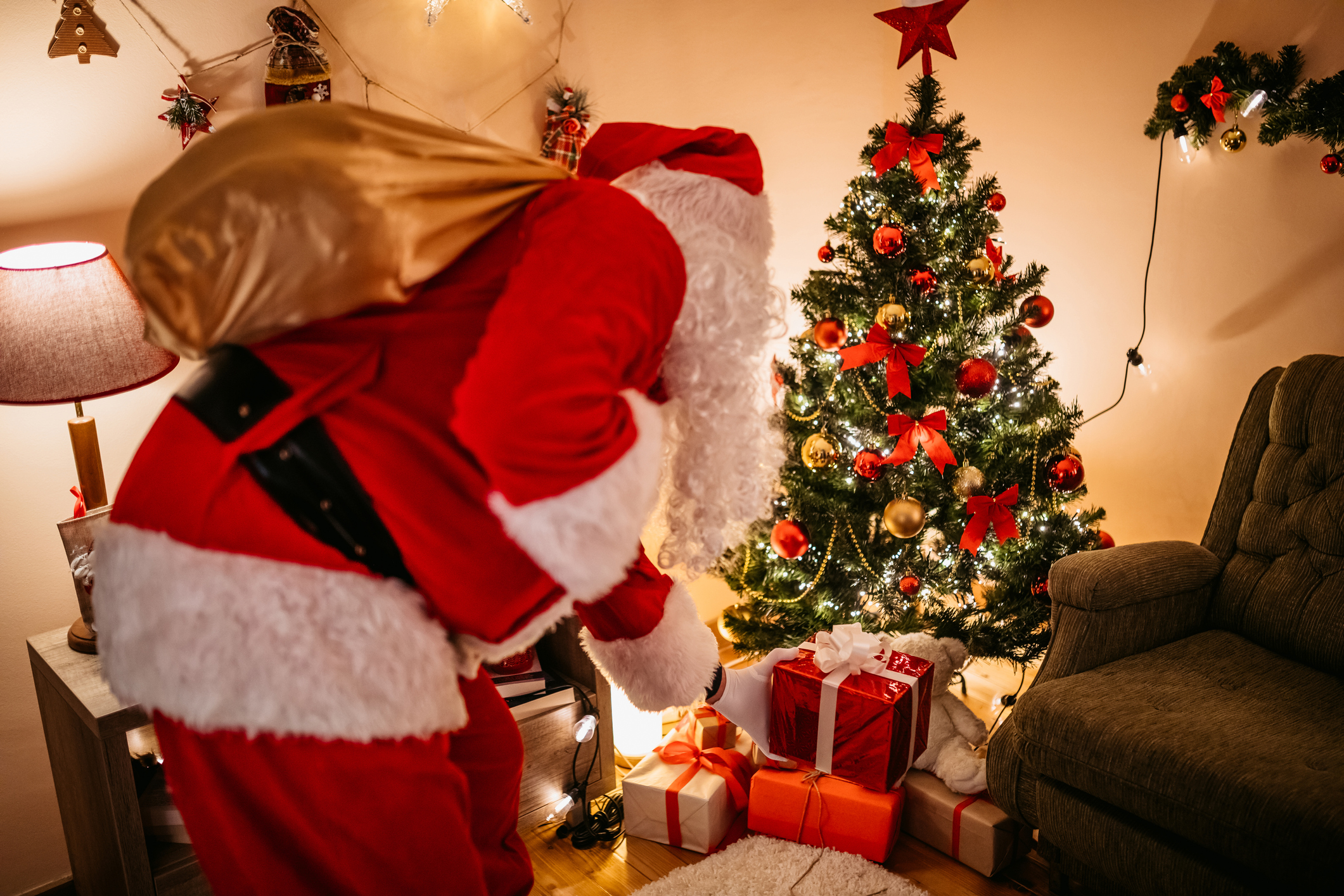
My oldest child is almost 10, and my twins are 7. For a couple of years, my oldest has questioned the existence of Santa Claus, and this year my twins told me a few of their friends told them Santa was actually just their parents. When my son told me — with incredulousness — that his friends didn’t think Santa was real, I asked him what he believed instead of launching into a narrative that would influence his opinion. I also thought of this year’s letter I had started to draft. What would happen to the letter if they stopped believing in Santa?
My son told me that of course Santa — and the Easter Bunny too — was real because we had photographic proof (thanks to an app that applies stickers to real photos that I use each year to catch the characters in action), and he swears he saw bunny ears in his room one year. I was relieved that my son still believes, but I walk a fine line between preserving the magic of Santa in my kids’ belief in him and being honest about who is really behind Christmas’ curtain. When my son told me his friends were wrong, I told him that I think Santa lives in all of us, and that I believe there are some things we just can’t explain.
I have no problem with going all in on Santa, but when my kids are ready to know the truth, I won’t stubbornly maintain the myth for my benefit. It’s sad to watch our babies lose some of their sweet naivete, but that doesn’t mean the fun or magic of Christmas is gone. It just changes. Knowing that there will be a day when my kids know parents — their parents — take on the role of Santa, I have been prepping them to become mini Santas for others by placing this letter on the counter every year.
I suspect my kids know I am the one to write these letters, but it doesn’t seem to take away from their belief that Santa arrives on his sleigh every Christmas Eve. If they believe I am the letter creator even though it’s signed from Santa, I think they see it as if I’m one of Santa’s helpers — like the fake Santa at the mall or fire station each year.
These extensions of the real Santa are important to them and add excitement to the season. But because the request is from Santa and not me, they seem more excited to participate in the tasks I help them carry out. This tradition of extending kindness and service to others helps them better understand the importance of Christmas and know how good it feels to create a little Santa magic for someone else.
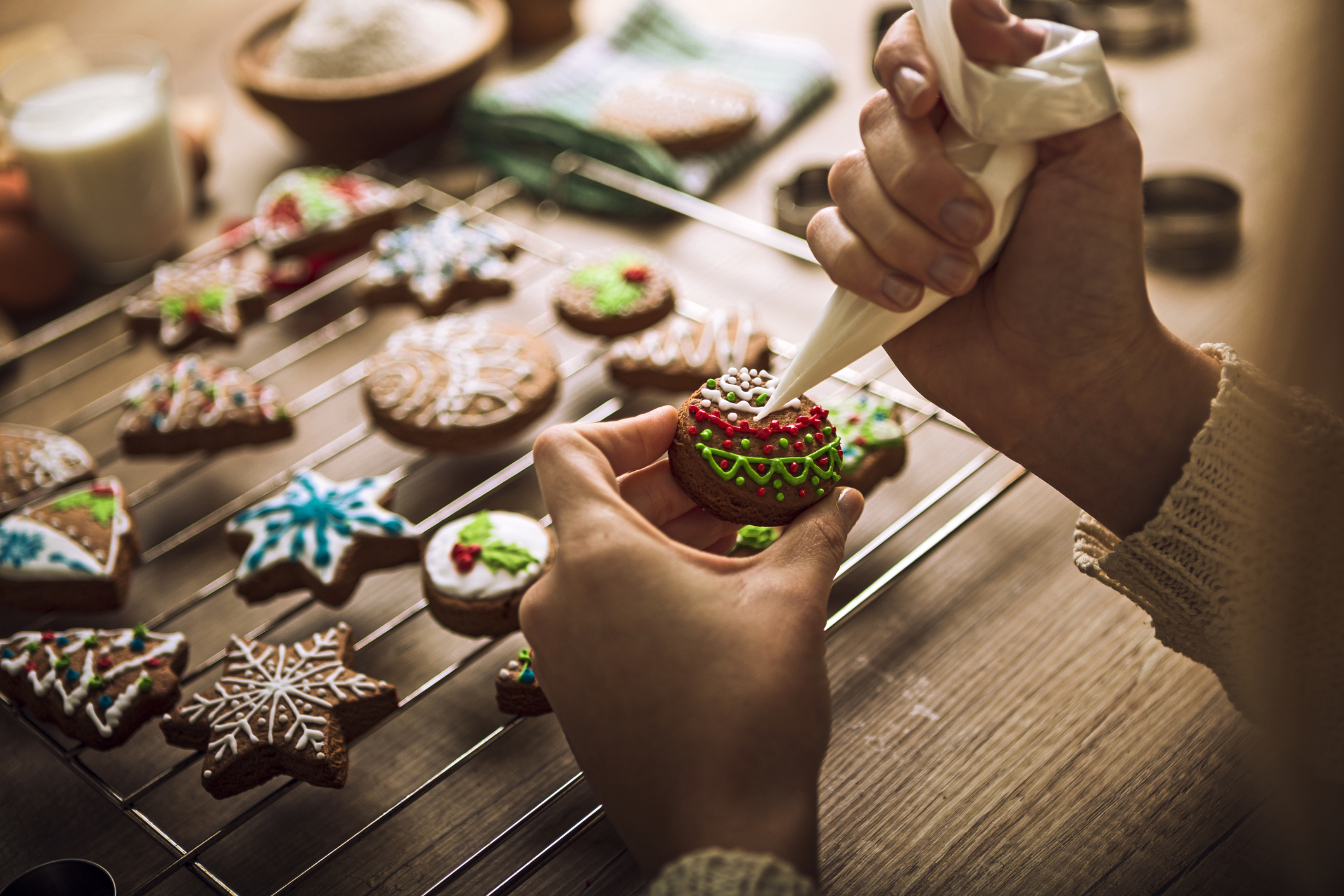
Even when my kids don’t believe in Santa, I will still write the letter. My goal is to always focus on the magic of the season. Sometimes that looks like children giddy with Christmas Eve anticipation as they place cookies and carrots out for Santa and his reindeer. Sometimes it looks like being the person to buy a coffee for the person behind you in line. Sometimes it looks like leaving a plate of cookies on a neighbor’s doorstep. And sometimes it looks like giving your time to someone who is lonely or searching for a reason to believe there is still good in the world.
I want my kids to know that Santa represents goodness, thoughtfulness, and compassion for other people. We all carry a little bit of magic, and I hope someday my kids will embrace this gift and become their own versions of Santa when they realize how cool it is to be the unseen joy for someone else.



